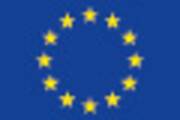IRISS
Increasing resilience in surveillance societies

What does surveillance mean for open democratic societies, and what are the implications for our form of social living? IRISS provides answers to these questions and input to a more rational societal discourse on surveillance and security in democratic societies.
The EU project IRISS investigated societal effects of different surveillance practices from a multi-disciplinary social science and legal perspective. It focused on the effects that surveillance practices introduced to combat crime and terrorism can have on citizens in open and democratic societies, but also looked at other society models.
Evaluation of citizens' attitudes towards surveillance
IRISS reviewed surveillance systems used in fighting crime and terrorism and examined the driving forces that had led to the spread of these practices. In a set of case studies, the impact of surveillance on the everyday lives of citizens was analysed in detail. Based on the findings from these case studies, a series of comparative empirical social experiments has been conducted to test different attitudes towards surveillance in different democratic contexts. These experiments investigate citizens’ attitudes towards surveillance and the extent to which democratic rights can be exercised under existing regimes of surveillance and how these rights can be strengthened. The empirical research informed an analysis designed to explore options for increasing social, economic and institutional resilience.
IRISS contributes to a better understanding of how surveillance affects different types of societies and how different groups react to surveillance. It produces a comprehensive account of resilience options, focusing on strengthening democratic processes and public discourse about appropriate reactions towards threats against open democratic societies.
A brief summary of the results as well as policy recommendations can be found in the IRISS policy brief and in more detail in the IRISS manual.
Publications
Publications
- . (2018). Surveillance and democracy – Sympthies and antagonisms (ITA Co-Authors: Walter Peissl, Jaro Krieger-Lamina). In K. Ball & Webster, W. (Eds.), Surveillance and Democracy in Europe (pp. 1-15). London/New York: Routledge. Retrieved from https://www.routledge.com/Surveillance-and-Democracy-in-Europe/Ball-Webster/p/book/9781138195523
- . (2018). The Cases: APNR, credit scoring and Neighbourhood Watch (ITA Co-Authors: Walter Peissl, Jaro Krieger-Lamina). In K. Ball & Webster, W. (Eds.), Surveillance and Democracy in Europe (pp. 30-50). London/New York: Routledge. Retrieved from https://www.routledge.com/Surveillance-and-Democracy-in-Europe/Ball-Webster/p/book/9781138195523
- . (2018). Black lists and black holes: Credit scoring in Europe (ITA Co-Authors: Walter Peissl, Jaro Krieger-Lamina). In K. Ball & Webster, W. (Eds.), Surveillance and Democracy in Europe (pp. 69-90). London/New York: Routledge. Retrieved from https://www.routledge.com/Surveillance-and-Democracy-in-Europe/Ball-Webster/p/book/9781138195523
- . (2015). Towards a taxonomy of social and economic costs. In D. Wright & R. Kreissl, (Eds.), Surveillance in Europe (pp. 212-218). London/New York: Routledge.
- . (2014). Conduct the observation/interviews – IRISS Deliverable D4.2 (September 2014) (p. 245). doi:/10.1553/ITA-pb-a62-2
- . (2014). Surveillance Impact Report – IRISS Deliverable D3.2 (June 2014) (p. 611). doi:/10.1553/ITA-pb-a62-1DOIWebsiteDownloadRISENWBIB Abstract
Deliverable No. D3.2 of the (FP7-) Project "IRISS – Increasing Resilience in Surveillance Societies". Objective: To investigate societal effects of different surveillance practices from a multi-disciplinary social science and legal perspective.
Further authors in alphabetical order: Bellanova, Rocco; Bergersen, Stine; Bonns, Wolfgang; Burgess, J. Peter; Ceresa, Alessia; Dahm, Sebastian; Fischer, Daniel; Fonio, Chiara; Friedewald, Michael; Galdon Clavell, Gemma; Galletta, Antonella; Goos, Kerstin; Jones, Richard; Kreissl, Reinhard; Lastic, Eric; LeLeux, Charles; Neumann, Alexander; Norris, Clive; Raab, Charles; Szekely, Ivan; Vissy, Beatrix; Webster, William; Zurawski, Nils - . (2014). Chapter: Austria Country Reports. In: IRISS (Increasing Resilience in Surveillance Societies) Deliverable 5: Exercising Democratic Rights Under Surveillance Regimes; Publisher: IRISS Project; Editors: Clive Norris, Xavier L'Hoiry (p. 51). doi:/10.1553/ITA-pb-a62-3
- . (2013). The Social Perspective, Increasing Resilience in Surveillance Societies – IRISS Deliverable D2.1 (January 2013) (p. 75). doi:/10.1553/ITA-pb-a62-bDOIWebsiteDownloadRISENWBIB Abstract
Deliverable No. D2.1 of the (FP7-) Project "IRISS – Increasing Resilience in Surveillance Societies". Objective: To investigate societal effects of different surveillance practices from a multi-disciplinary social science and legal perspective.
"The Social Perspective": A report presenting a review of the key features raised by the social perspectives of surveillance and democracy. - . (2012). Surveillance, fighting crime and violence – IRISS Deliverable D1.1 (December 2012) (p. 415). doi:/10.1553/ITA-pb-a62-aDOIWebsiteDownloadRISENWBIB Abstract
Deliverable No. D1.1 of the (FP7-) Project "IRISS – Increasing Resilience in Surveillance Societies". Objective: To investigate societal effects of different surveillance practices from a multi-disciplinary social science and legal perspective.
A report addressing and analysing the factors underpinning the development and use of surveillance systems and technologies by both public authorities and private actors, and their implications in fighting crime and terrorism, social and economic costs, protection or infringement of civil liberties, fundamental rights and ethical aspects. - . (2012). SurPRISE & IRISS: Zwei neue EU-Projekte zum Thema Überwachung, Privatsphäre und Sicherheit. Ita-Newsletter, 2 f.Retrieved from https://epub.oeaw.ac.at/ita/ita-newsletter/NL0312.pdf#2
Conference Papers/Speeches
Conference Papers/Speeches
-
03/05/2013
, Wien
Jaro Krieger-Lamina:
Die Kosten von Überwachung – aus Sicht der Technikfolgenabschätzung
Metaday #58
Duration
02/2012 - 01/2015
Project team
Funding
This project has received funding from the European Union´s Seventh Framework Programme for research, technological development and demonstration under grant agreement no. 285593.
